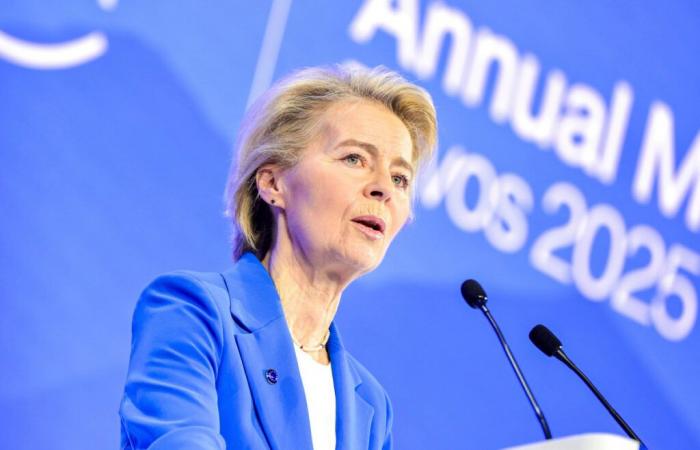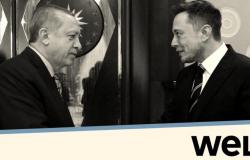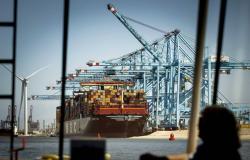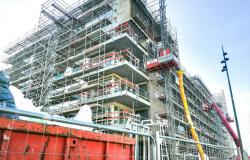On his first day, Monday January 20, 2025, as 47e President of the United States, Donald Trump signed the executive order on trade policy “» and continued threatening to impose customs duties of up to 25% on imports from Canada and Mexico, from 1is FEBRUARY. The next day, in a At the World Economic Forum, European Commission President Ursula von der Leyen warned that with “global trade barriers tripling in value” in 2024, “we have entered a new era of cutthroat geostrategic competition.”
She added: “Over the past 25 years, Europe has relied on the rising tide of global trade to drive its growth. It relied on cheap energy from Russia. And Europe has too often outsourced its own security. But those days are over.”
Von der Leyen’s remarks come at a time when global relations are being reshaped by growing protectionism, as countries strive to assert dominance in key sectors such as technology, clean energy and artificial intelligence. In her speech, she stressed that Europe must recalibrate its approach to global affairs, moving from dependence to self-sufficiency, resilience and innovation. As international relations are increasingly defined by trade tariffs and geopolitical power struggles, Europe finds itself at a crossroads, having to adapt to the changing global trade landscape while safeguarding its values and economic interests.
China
One of the most important points raised by Ms von der Leyen was the rise of non-market economies, particularly state-backed overcapacity in China, which is disrupting global trade flows. In response, Europe has implemented defensive trade measures, including adjustments in sectors such as electric cars, where market distortions are particularly evident. She stressed the need for a balance between economic protectionism and global collaboration, particularly in areas such as clean technology, digital infrastructure and the fight against climate change. “It is in no one’s interest to sever the bonds of the global economy,” Von der Leyen remarked. “Rather, we must modernize the rules to maintain our ability to produce mutual gains for our citizens.”
India
One of the key points of Ms Von der Leyen’s speech was Europe’s strategic reorientation towards establishing stronger partnerships with emerging economies, particularly in the Asia-Pacific region. By announcing that her first trip as Commission President would be to India, Ms von der Leyen underlines Europe’s desire to strengthen its ties with the world’s largest democracy. “With the Prime Minister [indien] Narendra Modi, we want to strengthen the strategic partnership with the largest country and the largest democracy in the world,” she said, emphasizing the importance of India as a vital partner for the future of the Europe. This reflects the Commission’s broader strategy to cultivate diverse global partnerships, reduce dependence on a small number of countries and foster cooperation based on mutual benefits, particularly in sectors such as as clean technologies and digital infrastructure.
However, Von der Leyen made it clear that Europe was ready to continue its relations with China, despite the challenges posed by the country’s economic imbalances. “We are ready to continue our discussions,” she announced, stressing that Europe’s approach remains one of cooperation and not confrontation, while insisting on fair and reciprocal trade relations. However, she recalled that “with Europe, what you see is what you get. We respect the rules. Our agreements do not come with hidden conditions.”
-The economic future of Europe
“We have everything we need to succeed,” said Ms. Von der Leyen. “We have a world-class workforce, a huge single market of 450 million people and a long tradition of innovation.” The European Commission is expected to unveil a roadmap next week focused on boosting productivity, decarbonisation, tackling skills and labor shortages and reducing bureaucracy. These efforts are part of a broader strategy to ensure that Europe remains competitive in the global economy, while prioritizing sustainability and fairness.
The Commission’s effort to update its economic policies also includes the creation of a European Savings and Investment Union, intended to better mobilize capital for innovation and the clean technology sector. “We are not short of capital. We lack an efficient capital market that transforms savings into investments,” explained Ms Von der Leyen, stressing the importance of streamlining Europe’s financial systems to support technological innovation and economic growth.
As global trade barriers rise and geopolitical tensions intensify, the European Commission is recalibrating its approach. By prioritizing innovation and energy independence, Europe is gradually turning towards emerging markets, particularly in Asia, positioning these regions to benefit from the redefinition of the global energy strategy. Europe and overcoming traditional alliances.
This article was originally written translated and edited for the Paperjam website in French.






